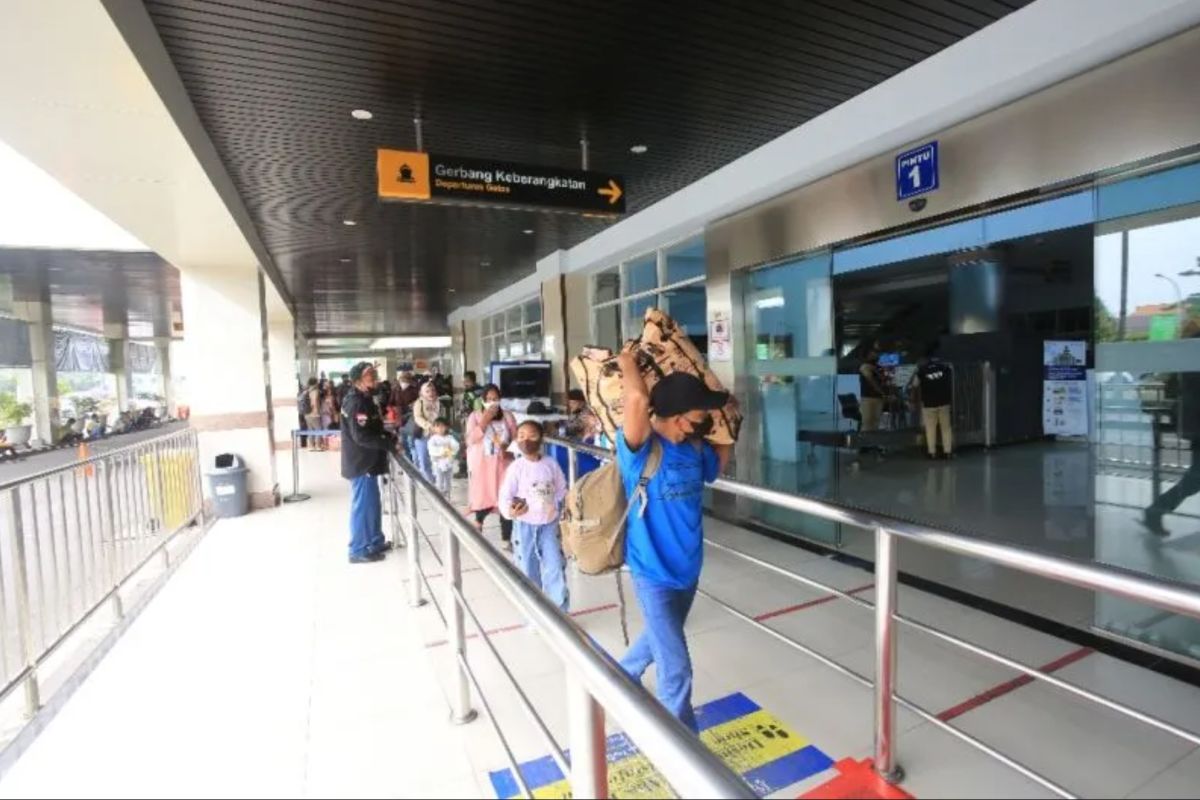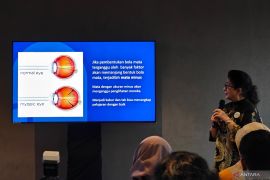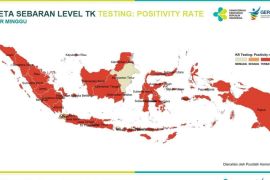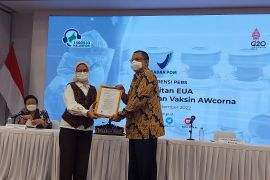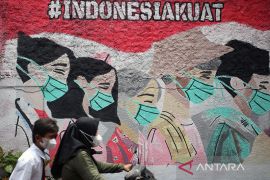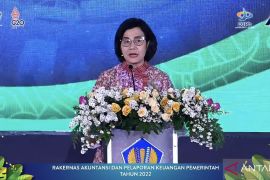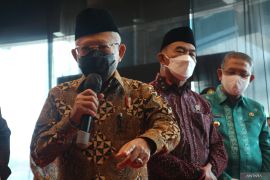This year, for the first time during the COVID-19 pandemic, Indonesians will welcome the Christmas and New Year holidays with a relatively low number of cases. As of December 19, 2022, the number of active cases of COVID-19 has reached 809, 2,457, with the positivity rate recorded at 4.63 percent, or below the 5-percent threshold set by the World Health Organization (WHO).
The number of cases on December 19 dropped below the one-thousand mark for the first time in two months and was the lowest in the past five months, after Indonesia experienced a rising trend of cases from early to mid-November 2022, with the average daily case count above eight thousand patients.
Currently, the number is lower compared to the same period in 2021 and 2020.
Based on the Health Ministry's Research and Development Agency, the number of confirmed cases rose to 10 thousand with more than 100 thousand active cases recorded per day during 2020's year-end holidays. The positivity rate even exceeded 10 percent.
The pandemic situation, which was dominated by the first COVID variant, prompted the government to impose Large-Scale Social Restrictions (PSBB) - Transition 2. However, COVID-19 cases continued to increase until they peaked on February 6, 2021, reaching 176,433 active cases, 14,628 daily confirmed cases, and 309 deaths.
The government's efforts to curb the case surge included canceling the Christmas collective leave on December 24.
The Omicron variant dominated the surge during the Christmas and New Year period in 2021, with 65,427 daily confirmed cases, 586,113 active cases, and 300 deaths recorded from the variant in mid-February.
One of the things that affected the worsening condition was the low coverage of vaccinated citizens as the COVID-19 vaccination implementation had just started in Indonesia.
Pandemic under control
Christmas and New Year celebrations in the pandemic's third year should draw on the experiences of the past two years. This year, the community must cooperate to maintain the low trend of cases.
The government has issued the COVID-19 Handling Task Force's circulars No. 24 and No. 25 of 2022 concerning domestic and international travelers as a guideline for controlling cases in the country during the Christmas and New Year holidays.
The circulars stress the importance of booster shots against COVID-19 for travelers. Booster shots are important considering that the level of immunity against COVID-19 can decrease after six months.
The history of vaccination and booster shots has also been integrated with the COVID-19 tracking app PeduliLindungi in public places, including terminals, airports, ports, and stations so that travelers who already meet the requirements can travel safely and comfortably.
The provisions state that domestic travelers aged 18 years and above are required to get the third dose of vaccination, those aged 6 to 17 years are required to get the second dose, and travelers under 6 years old are not required to be vaccinated.
Adult travelers with certain health conditions, who cannot receive the COVID-19 vaccine, are required to submit a negative antigen result and a doctor's statement.
Moreover, Indonesian citizens aged 18 years and above who are traveling abroad are required to show a physical certificate stating that they have received the booster shot.
Foreigners visiting Indonesia are required to use the PeduliLindungi application and get the second dose at least 14 days before arriving in Indonesia. However, those with comorbidities can bring a letter of statement from their home country.
Anticipatory steps
The Ministry of Transportation has estimated that the number of travelers will reach 44.2 million in the period from December 22, 2022, to January 8, 2023. Based on that prediction, public mobility will be dominated by private cars (28.26 percent) and motorcycles (16.47 percent).
Minister of Home Affairs, Tito Karnavian, has extended the implementation of public activities restrictions (PPKM) to control the transmission of COVID-19 and as a measure against case fluctuations in each region.
Ministerial Instructions No. 50 of 2022 concerning the extension of PPKM in the Java and Bali regions and No. 51 of 2022 concerning the extension of PPKM outside Java and Bali are valid from December 6, 2022, to January 9, 2023.
The two ministerial instructions were issued to anticipate the potential increase in COVID-19 transmission due to the increased mobility of citizens during the Christmas and New Year holidays.
According to the instruction, all districts and cities in Indonesia can now implement PPKM Level 1, meaning community activities in all sectors have almost completely returned to normal.
Meanwhile, local governments have been urged to form teams for health posts near the posts that have been prepared by the police, the transportation office, and locations that are crowded with tourists and are prone to accidents.
Health posts have also been set up at local health centers and hospitals on the main route where the public passes.
In addition to health posts, local governments also need to prepare health service facilities and the Public Safety Center (PSC) 119 to anticipate emergency cases, accidents, and other diseases, as well as prepare COVID-19 referral hospitals to anticipate a potential hike in cases due to high community mobilization.
Related news: Police chief outlines formula for smooth traffic during holiday period
Related news: Ministry prepares for rise in mobility at ports during holidays
Editor: Rahmad Nasution
Copyright © ANTARA 2022
